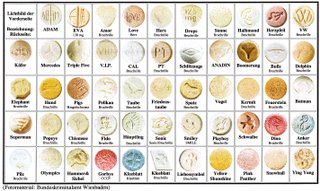How much would you pay???
By now everybody knows that college football is in full swing. Currently in NCAA rankings, my Ohio State Buckeyes are the number one team in all the land! Later today, they will be taking on the thirteenth ranked Iowa Hawkeyes at Kinnick Stadium, which is in Iowa City. For those of us who are not lucky enough to have tickets the game, it will be broadcast in front of a national television audience on ABC. But what about those people who do have tickets to the game?
Now I am a diehard Buckeyes fan, but for the right price, I would be willing to sell my ticket to any Ohio State football game (if I had one)! From economics, we know that as the demand for an item goes up, the price for that particular item goes up, especially as the quantity available for the particular item decreases. This is where the economics of the football game come in. Currently on eBay - Ohio State vs. Iowa, Ohio State vs. Iowa Tickets items on eBay.com, a single ticket to the game costs up to $900! Considering that the typical student ticket to any one of these games ranges from $25 to $50, that is a pretty nice profit for a single game ticket. Now, this is just a ticket to Ohio State against Iowa. For a ticket to the biggest rivalry in all of sports, Michigan vs. Ohio State, one can only guess and wait to see how high ticket prices skyrocket for this amazing game. Especially if both teams are undefeated when the Wolverines come to the Horseshoe and take on Ohio State this upcoming November 18th.
So what would you do if you were a student at Iowa and had a ticket that you could potentially sell for $900 or more? What if you were a student at OSU and had a ticket to big game against Michigan: go to the game or illegally sell the ticket? As aforementioned, I'm a huge Buckeyes fan and a have a hatred for the Michigan Wolverines. But if I had a ticket to the game and could sell it for $500 or more, you better believe I'm selling that ticket and settling the watch the game on a big screen television somewhere! How about you?


